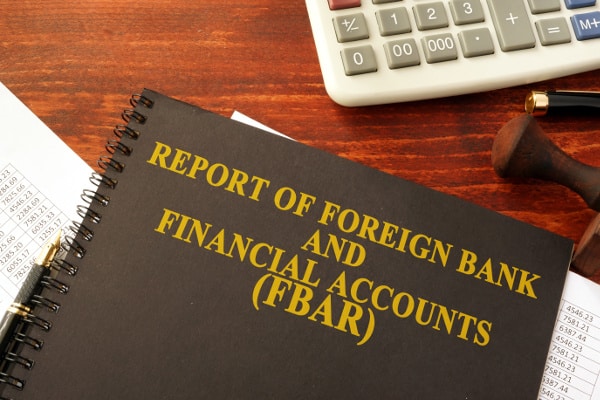How To File An FBAR

2014 was the first year that over a million people submitted an FBAR filing, the form that discloses foreign-held assets and/or income exceeding $10,000. Many taxpayers may not realize that the FBAR form is actually submitted to FinCEN, the Treasury department’s financial crimes bureau. It’s not a part of your “regular” tax filing, and so special care must be taken to ensure that you submit your form correctly — as FBAR penalties for non-disclosure or failure to file can be severe.
What You Should Know About The FBAR Form
As mentioned, FinCEN Form 114 — more commonly known as “FBAR” — is absolutely required if you hold over $10,000 in assets in foreign accounts, or if you earned at least that much abroad. The IRS and the Financial Crimes Enforcement Network have been ramping up their focus on offshore tax evasion, both intentional and unintentional.
FBAR Fast Facts:
- The FBAR filing deadline is typically April 15, the same day as your tax returns. However, in 2018, the deadline is actually April 17 (due to weekend and holiday timing).
- If you are filing your own FBAR, the link to do so is here: https://bsaefiling.fincen.treas.gov/NoRegFilePDFIndividualFBAR.html
- The FBAR is filed with FinCEN, not the IRS, and is separate from your tax return
- Even if you’re taking advantage of the Foreign Earned Income Exclusion or a foreign tax credit, you may need to file a return and your FBAR
- There is no such thing as an FBAR extension form: every taxpayer receives an automatic extension to October 15 each year without doing anything
Foreign Bank Account Reporting And Filing
Here’s the process you’ll need to follow if you’d rather file your FBAR yourself instead of having a tax professional file it for you.
Step 1 – You’ll need to go to this page to begin the filing process. Note that there are two different pages to start the FBAR filing process, and you’ll want the one that says “Individual” on it. The other page is for tax professionals such as the attorneys at Abajian Law, who can also file the FBAR on your behalf.
Step 2 – Next, you’ll need to meticulously and honestly fill out each section in the FBAR form with the pertinent information.
Step 3 – Once that’s done, you’ll need to return to the original page you accessed to start the FBAR preparation process, and instead follow the link for FBAR submission.
Step 4 – Now, submit your FBAR and receive your BSA confirmation number. You’ll want to record that number to prove that you did in fact make your submission, and you’ll need it in case you need to amend your FBAR later.
FBAR Late Filing
Remember that you’ll receive an automatic extension to October 15th each year; but if you fail to submit your FBAR in that time frame, you’ll need to bite the bullet and file the FBAR late.
If you have a delinquent FBAR, the IRS says to:
- Review all FBAR instructions and requirements
- Provide a written statement explaining why the FBAR is being submitted late
- File your late FBAR with FinCEN (as outlined above)
- Select your reason for the late filing on the submission form cover page
Assuming you reported your foreign income and/or assets correctly on your regular tax return, the IRS will probably not impose a penalty for your late filing. However, if you have unreported foreign earnings or assets that you have not paid tax on, you’ll be looking at a range of penalty possibilities and should consult an FBAR tax attorney before filing a late FBAR.
Experienced Los Angeles FBAR Attorneys
Whether you’re right on time and are organized with all your documents, or you have multiple years of unreported foreign assets, enlisting the help of a qualified tax attorney can make tax time a lot less stressful — and help you avoid substantial penalties. At Abajian Law, we pride ourselves in our ability to discreetly and professionally handle tax matters involving even very large sums. Our goal is to use our years of expertise to minimize your legal tax obligation. We have successfully assisted clients on complex FBAR matters for over a decade now.
If you’ve been ignoring your tax problems, it’s only going to get worse the longer you wait. You might be amazed at the peace of mind one simple call to Abajian Law can provide. We’re here to help you handle your offshore tax problems once and for all.





